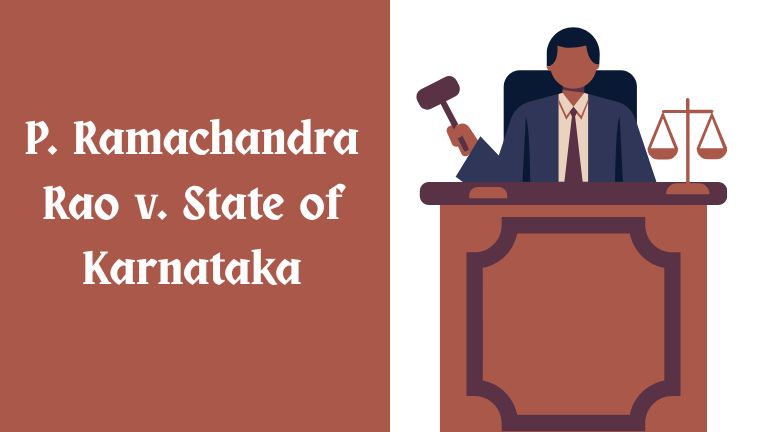
Case Summary: P. Ramachandra Rao v. State of Karnataka
Citation: (2002) 4 SC CK 0040
Date of Decision: 16 April 2002
Court: Supreme Court of India
Bench: Full Bench (Justice S. P. Bharucha, Justice S. S. M. Quadri, Justice Ruma Pal, Justice R. C. Lahoti, Justice N. Santosh Hegde, Justice Doraiswamy Raju, Justice Arijit Pasayat)
Case No: Criminal Appeal No. 535 of 2000
[Judgment Source]
https://www.courtkutchehry.com/Judgement/Search/AdvancedV2?docid=273944
Law Points Raised:
• Whether courts can judicially fix outer time limits for trials where statutes do not prescribe them.
• Scope and applicability of Article 21 – right to speedy trial in corruption cases.
• Whether 'Common Cause' and 'Raj Deo Sharma' rulings contradicted the Constitution Bench judgment in A.R. Antulay.
• Whether time-limit guidelines from previous rulings applied to Prevention of Corruption Act cases.
Ratio Decidendi:
• Right to speedy trial is part of fair procedure under Article 21, but cannot be enforced by prescribing judicially fixed outer time limits.
• Constitution Bench in A.R. Antulay holds that such time limits are not advisable or feasible.
• Judicial activism cannot substitute legislative will when statutes don’t provide for trial deadlines.
• Directions in 'Common Cause' and 'Raj Deo Sharma' are overruled as contrary to constitutional jurisprudence.
Final Ruling:
The Supreme Court allowed the appeals, reaffirmed that courts cannot judicially prescribe outer time limits for completing trials, and overruled the contrary directions in earlier rulings. The right to a speedy trial continues to be enforceable based on circumstances, but not through rigid timelines.
Key Paragraph References:
• Para 1 – Overview of Article 21 and evolution of right to speedy trial
• Para 3–4 – Framing of constitutional question and referral to larger bench
• Para 7–10 – Review of earlier rulings and contradiction with Antulay
• Para 11 – Guidelines laid down in Antulay reaffirmed